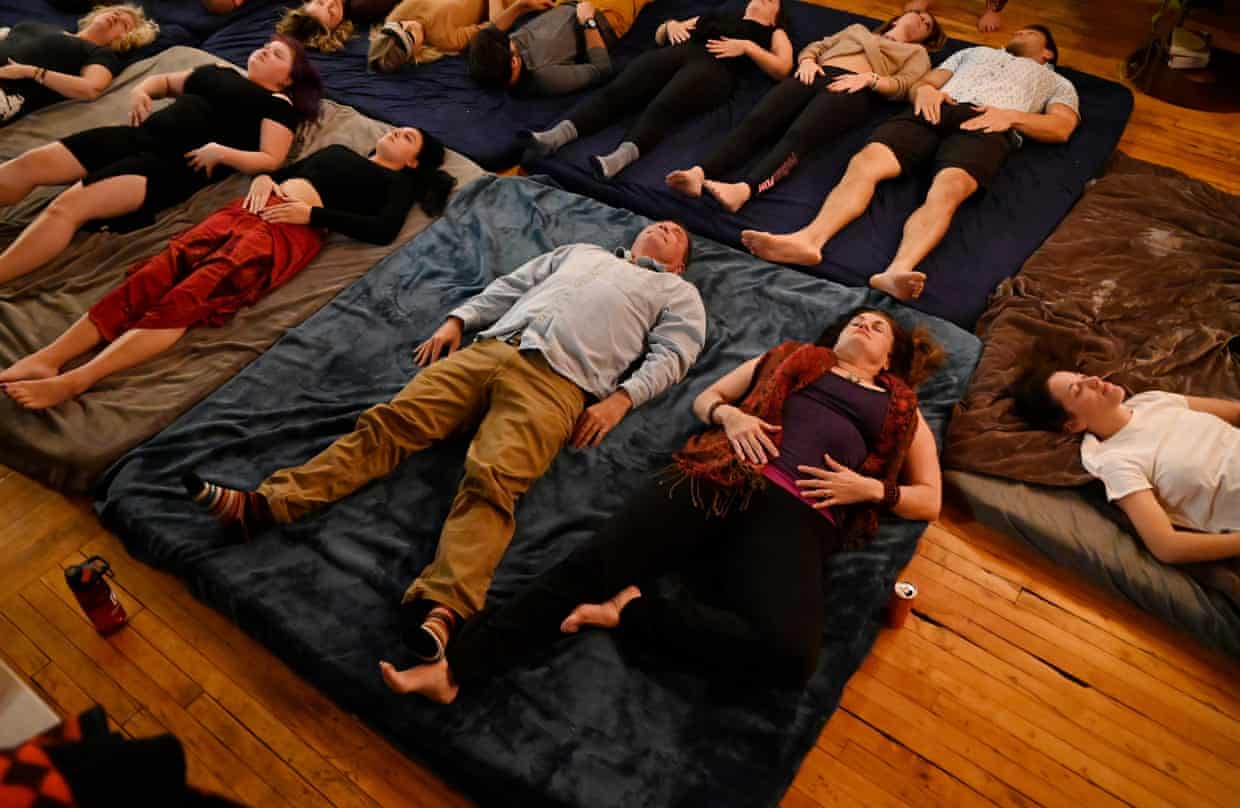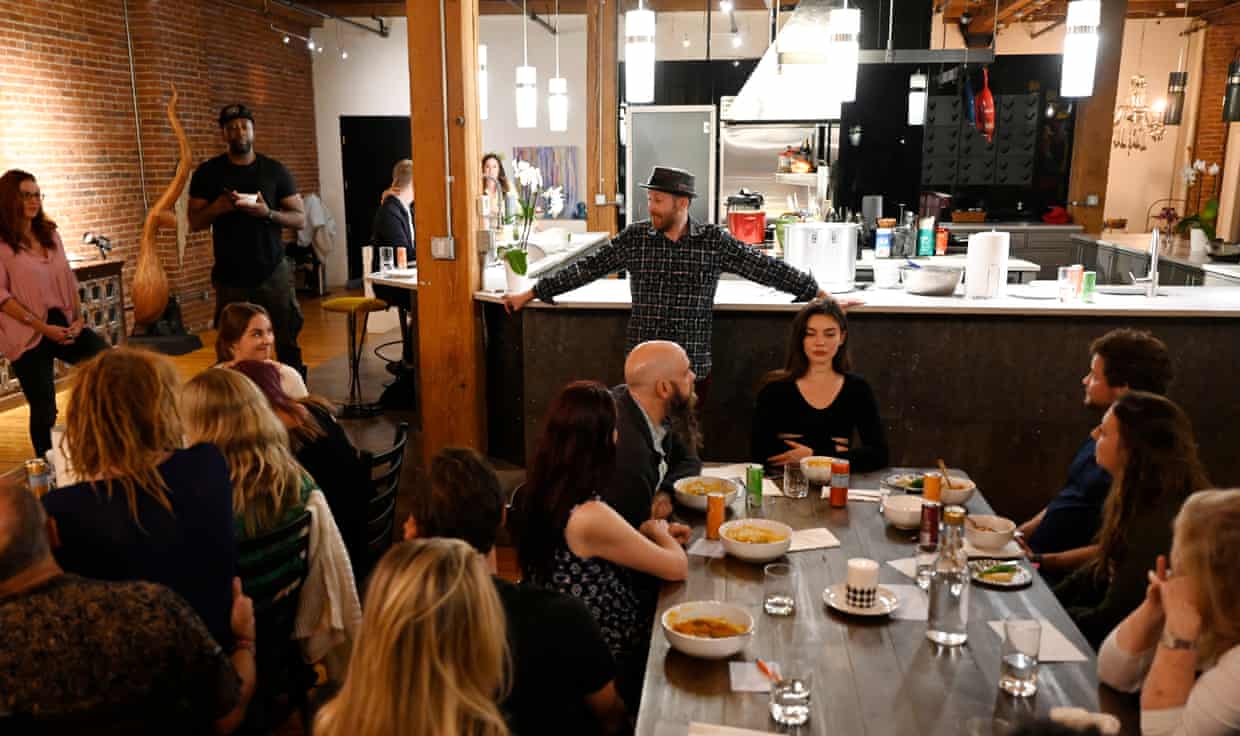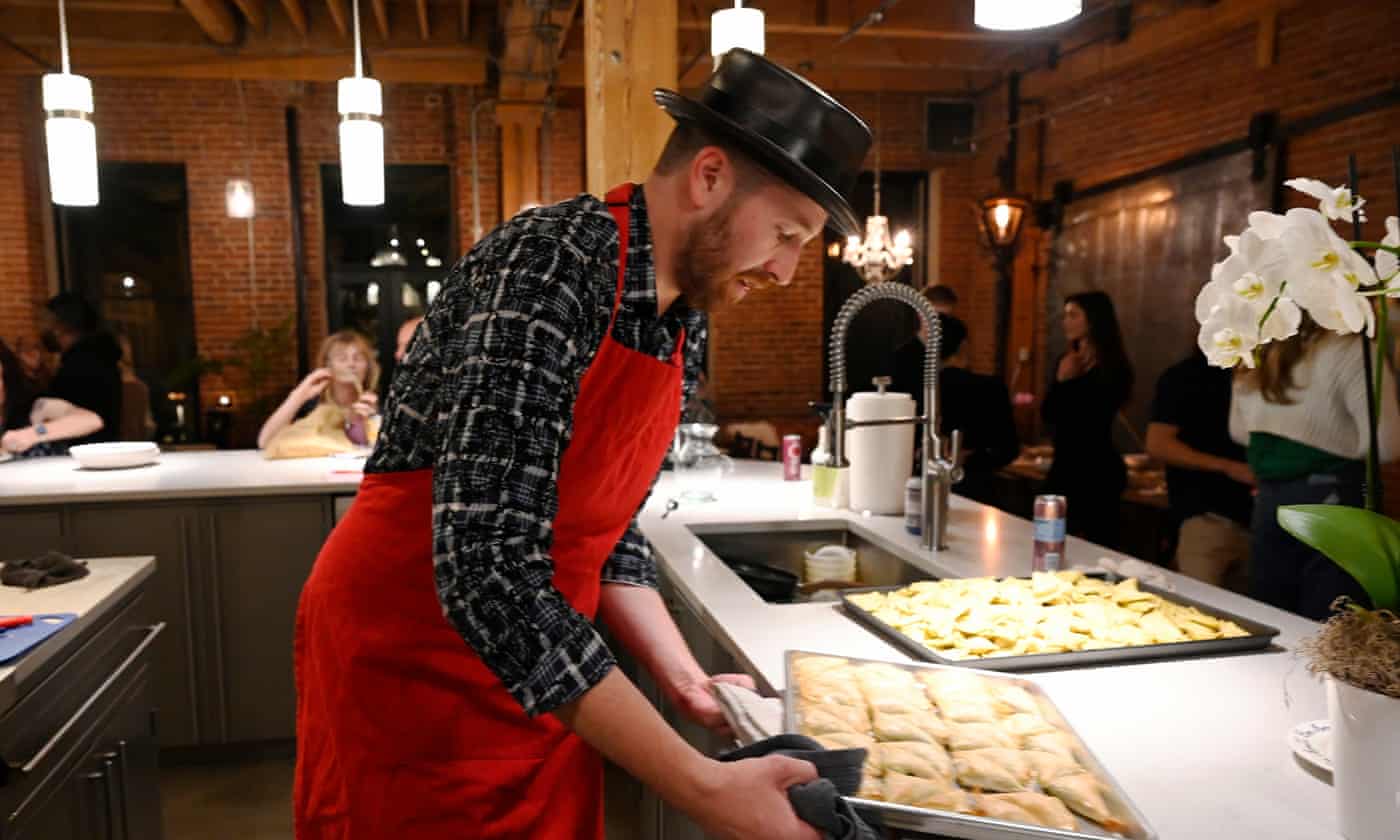Magic mushrooms are all the rage. But are they Jewish?
"Rabbi Ben Gorelick is facing up to 32 years in prison for distributing psychedelics. His defense rests on the argument that tripping is a Jewish rite
On 10 January, just as the sun was setting behind the Rocky Mountains, uniformed narcotics officers raided an industrial storage facility in Denver’s north end, in a commercial strip between a coffee wholesaler and a plumbing supply store. There, they found scales, petri dishes, grow tents and multiple white miniature freezer units, jam-packed with several pounds of magic mushrooms.
The facility was linked to Benjamin Gorelick, a rabbi who leads the Sacred Tribe, a multi-faith membership-based non-profit, which Gorelick calls a “synagogue”. The Sacred Tribe counts about 270 members and Jewishness is not a precondition of membership. (According to its website, they even welcome “rascally atheists”.) The Sacred Tribe celebrates the Jewish high holidays, hosts breath-work seminars, and routinely congregates for a “sacred sacrament”, in which the mushrooms feature.
Gorelick, 43, was raised Jewish, in New Mexico. He left the south-west (and religion) behind in his late teens, decamping to Alaska to teach mountaineering. In the mountains, he reconnected with his spirituality. He sought a deeper connection to his community and to God. In 2018, he began rabbinical training. He was ordained in 2019. In photos, Gorelick sports a spiky blue mohawk hairdo, bisecting his skull like a punk rock dorsal fin. His fingernails are painted sparkly silver and black. Definitely – and, one gets the sense, rather deliberately – not your bubbie’s rabbi.
While training, Gorelick also had his first psychedelic experience. “That was the first time when I felt, in my body, God and oneness,” he tells the Guardian, speaking from his home in Broomfield, Colorado, about 15 miles north of Denver. The Sacred Tribe is his way of facilitating such experiences with others. The group is donations-based, and he maintains that 90% of its members have never given him so much as “a thin penny” for anything, including access to psychedelic drugs.
Gorelick (who asks to be called “Rabbi Ben”) has been charged with felony possession of a Schedule I controlled substance with intent to distribute. The Denver district attorney sees him as a narcotics manufacturer. Rabbi Ben insists that his sacraments are (or ought to be) protected by the first amendment’s religious protections. At an upcoming court hearing this Monday, he faces a minimum of eight and maximum of 32 years in state prison. “We didn’t commit a crime,” Gorelick insists. “This is part of 2,300 years of Judaism.”

In the US, religious groups have secured the right to use psychedelic drugs, under the first amendment’s protection of religious freedom. A unanimous 2006 supreme court ruled that a New Mexican Christian church, the União do Vegetal (UDV), could legally host ceremonies featuring DMT-containing ayahuasca. In How To Change Your Mind, his bestselling 2018 chronicle of the current “psychedelic renaissance”, Michael Pollan called the ruling a “watershed event”. It made crystal clear that the government was in no position to impinge on “sincere exercise of religion”.
“He’s practicing in the lane of what seems like sincere religious belief to me,” says Danny Peterson, a DC-based attorney advising on Gorelick’s case. “The question is not whether Ben’s actions constitute violations of controlled substance laws. They do. The question is: is the government committing a new crime by enforcing these laws against him? And they are.”
Gorelick’s fellow travelers seem similarly sincere. Yehuda, 24, flew to Denver to partake in the Sacred Tribe’s psychedelic sacraments. (“Yehuda” is a pseudonym.) He was raised Jewish and had nurtured an interest in Jewish mysticism, including the Kabbalah. He had never taken a psychedelic before congregating with Gorelick and other members of the Sacred Tribe. “The reason that I was motivated to do it,” he says, “was because it was being done as a Jewish religious ceremony.”
Some of the Tribe’s members are more Kabbalah-curious. Sofia (also a pseudonym), 33, identifies as culturally Lutheran and theologically Unitarian, and works at a multi-faith community center. She, too, was attracted to Gorelick’s exploration of the Kabbalah by psychedelic means. She sees Gorelick’s psychedelic exploration as falling squarely within the first amendment’s religious protections.
She drank wine when she was 10, at her first communion – a Christian sacrament that contravenes drinking age laws. “I see that as very analogous,” she says.

Some outside of Gorelick’s direct orbit wince at the idea that psychedelic drugs are part of some age-old Jewish practice. “It’s just not the case,” says Rick Strassman, research pharmacologist and author of DMT and the Soul of Prophecy. “The only intoxicants mentioned specifically in the Hebrew Bible are strong wine and liquor. That’s it.”
Still, the entwined histories of psychedelia and Judaism run wild with speculation. Strassman’s own research compares biblical mysticism to psychedelic states. He theorizes that certain prophetic visions – like Ezekiel’s description of a many-faced cherub, its wings bedecked with whirligig wheels – are attributable to endogenous DMT, produced naturally in the human body.



No comments:
Post a Comment